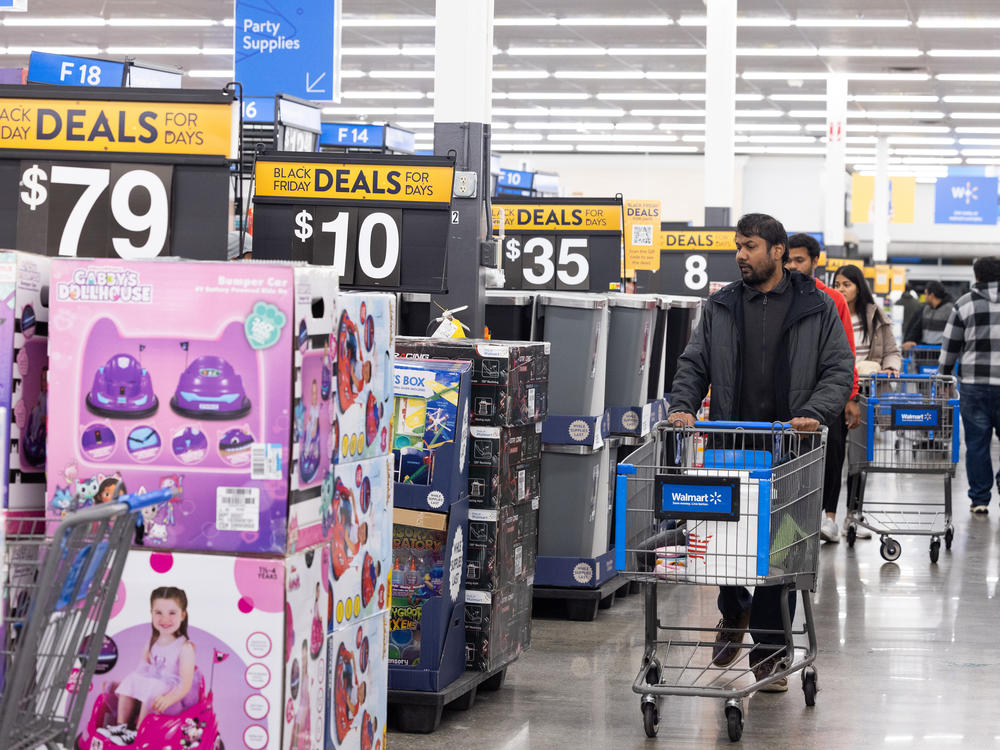Section Branding
Header Content
Inflation looms large as Black Friday shoppers head to the stores
Primary Content
Black Friday, the unofficial shopping holiday that's either a boon or a burden, depending whom you ask, is again facing another test on its winding path to securing Americans' affection.
Two years ago, fears of catching coronavirus kept many shoppers out of stores. Last year, consumers bought early for fear of not getting what they needed amid supply chain clogs.
And this year, yet another global phenomenon is looming large: inflation.
Though the economy's decline has slowed in recent months and the job market appears strong, prices for food, rent, gasoline and other basic necessities remain high.
A survey from the National Retail Federation (NRF) found that the number of shoppers who say the economy is having a big impact on their holiday plans reached 60%, the highest level since the Great Recession of 2008-2009.
But even while shifting priorities, consumers' buying habits have remained resilient.
A record 166.3 million shoppers are expected to hit the stores from Thanksgiving Day through Cyber Monday, almost 8 million more than when the NRF began tracking data in 2017. The average shopper still plans to spend more than $800 on everything from gifts to decorations.
Many report they'll be more selective in what they buy, in many cases trading down for cheaper goods and less expensive stores.
"Consumers want better prices so they're waiting on the sidelines," Krish Thyagarajan of DataWeave Analytics told NPR's Alina Selyukh on Morning Edition. "It's going to really boil down to whether the stores blink first or the retailers blink first."
Vivek Pandya, who tracks online shopping for Adobe analytics, told NPR that computers and electronics are expected to be tagged with the biggest discounts, averaging a third off.
Shoppers are also increasingly dipping into their savings for holiday purchases, turning more to "buy now, pay later" services such as Afterpay that offer users installment plans.
Many are also running up their credit cards at a time when the Federal Reserve is hiking rates to cool the U.S. economy. Credit card balances overall are at the highest they've been in 20 years.
Isela Dalencia, who was shopping for household essentials such as detergent at a Walmart in Secaucus, New Jersey, earlier this week, told The Associated Press that she's delaying buying holiday gifts until Cyber Monday — the Monday after Thanksgiving — when online sales rev up.
Then, she will wait again until the week before Christmas to get the best deals, unlike last year when she started buying before Black Friday.
"I am shopping less," Dalencia said, noting that she will spend about $700 for holiday gifts this year, one-third less than last year.
Katie Leach, a social worker in Manhattan, was also browsing the aisles at Walmart but as usual, she will start holiday shopping during the first week of December.
This time, however, she'll be relying more on bargains, her credit card and "buy now, pay later" services to get her through the shopping season because of surging prices on food and other household expenses that are hitting her bottom line.
"The money is not going as far as last year," Leach said.
The Associated Press contributed reporting.
Copyright 2022 NPR. To see more, visit https://www.npr.org.

